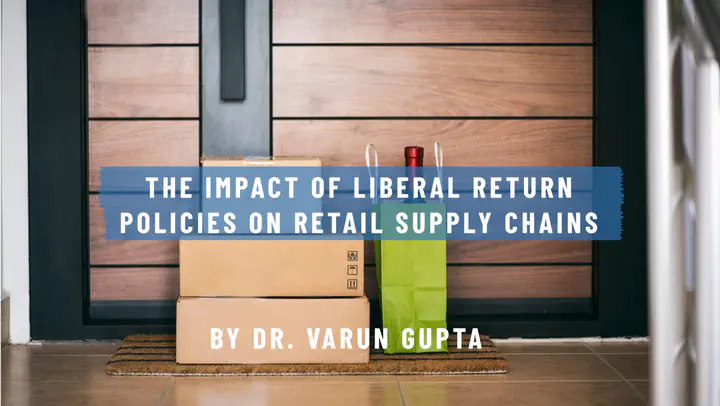🛍️ How Liberal Return Policies Like Costco's Are Shaping Retail Supply Chains and Reverse Logistics

In the retail industry, liberal return policies have become a hallmark of exceptional customer service, and Costco Wholesale is one of the biggest champions of this trend. But what are the historical roots of such policies, and why do companies like Costco Wholesale continue to embrace them while others scale back? 🤔
I recently found this interesting news article wherein a couple returned their 5-year-old mattress to Costco Wholesale and got their money back!

Another couple posted a TikTok video of returning their 2-year-old mattress at Costco.
📜 A Brief History of Liberal Return Policies
The notion of “customer is always right” has been the foundation of many liberal return policies in retail. These policies—offering no-questions-asked returns—have fostered customer loyalty and trust, making it easier for buyers to shop with confidence. While beneficial in cultivating long-term relationships, these policies pose operational challenges, including fraudulent returns and rising costs.
💡 Key Insight: Liberal return policies can create a balancing act between ensuring customer satisfaction and managing operational efficiency. The key lies in making it work without bleeding profits.
💪 Costco’s Return Policy: A Legacy of Generosity
Costco’s legendary return policy is one of the most generous in the industry—shoppers have been known to return items such as years-old mattresses and even half-eaten products. While this may seem unsustainable, Costco leverages this strategy to build unshakable customer loyalty. Their return policy builds trust, encouraging customers to buy high-ticket items like electronics, furniture, and mattresses, knowing they can return them easily, if needed.
Contrast this with retailers like Bed Bath & Beyond, which has partly struggled due to poor inventory management and tighter return policies. Amazon, on the other hand, despite some restrictions, has thrived by focusing on hassle-free returns.
🔄 Reverse Logistics and Supply Chain Implications of Returns
The reverse logistics process—handling returned goods—has significant supply chain implications. Costco, with its liberal policy, handles a high volume of returns, which requires an efficient and cost-effective reverse logistics system. This involves inspecting, refurbishing, reselling, or even recycling returned products. Efficient management ensures minimal wastage and helps retailers recover value from returned items.
In fact, the cost of handling returns is becoming a major focus for retailers across the board. According to Statista, returns cost the retail industry billions yearly, meaning an efficient returns strategy can become a competitive advantage.
🌐 E-Commerce: Changing the Returns Game
The rise of e-commerce has only intensified the returns challenge. Online shopping often leads to higher return rates—ranging from 15% to 30%—as customers cannot physically inspect products before purchasing. Retailers must now tackle the logistics of returning items bought online, involving complex tracking, transportation, and warehousing processes.
📚 Lessons for Retailers: Managing Returns Wisely
Here are some strategies that retailers can implement to manage their return policies effectively:
- Data-Driven Approach: Use analytics to identify trends and reduce returns by improving product descriptions and customer education.
- Return Policy Transparency: Set clear guidelines for returns while balancing flexibility and profitability.
- Reverse Logistics Optimization: Build efficient systems for processing returns to minimize costs and maximize value recovery.
- Sustainability Focus: Implement sustainable practices to handle returns, such as refurbishing or recycling.
🚀 Conclusion: The Future of Retail Returns
As e-commerce grows and customer expectations rise, the role of return policies in retail strategy cannot be overstated. Retailers like Costco are pioneering liberal return policies that retain customers. Still, they must continuously innovate their reverse logistics and supply chain processes to stay ahead of rising return volumes.
#RetailInnovation #ReverseLogistics #SupplyChainStrategy #EcommerceImpact #CostcoReturns #ReturnsManagement #CustomerExperience #RetailOperations #SupplyChainOptimization